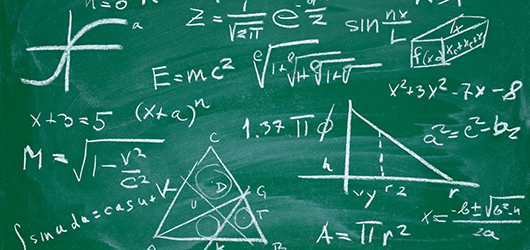
22 Feb 2016
No evidence of a decline in A-level maths standards since the 1990s
In one of the most comprehensive studies into A-level standards, mathematics experts at Loughborough University judged 66 A-level scripts from the 1960s, 1990s and the current decade.
They found a grade ‘B’ today is equivalent to an ‘E’ in the 60s, but found no evidence that standards have declined since the 1990s.
Researchers applied a comparative judgement technique that enables direct comparison of mathematical performance across different examinations – experts judged the better mathematician from randomly selected pairs of papers. Bias was eliminated by re-typesetting questions and re-writing answers in the same hand.
Dr Ian Jones in Loughborough University’s Mathematics Education Centre led the study. He said:
“There has been ongoing concern that maths A-levels are getting easier. Whilst our study does show a decline in standards between the 1960s and 1990s, there is no evidence to suggest there has been further decline in the last 20 years.
“Our study has overcome limitations of previous research in this area, making it the most robust of its kind. With debate continuing about the standard of maths exams it’s important the decision makers have the best evidence available to them.”
Judge for yourself
Dr Jones and his team have made the comparative judgement tool publically available online. Take a look and judge for yourself whether children of the 60s, 90s or 21st century are the better mathematicians.
Fifty years of A-level mathematics: Have standards changed? is written by Ian Jones (Loughborough University), Chris Wheadon (No More Marking), Sara Humphries (Ofqual) and Matthew Inglis (Loughborough University).
The study was funded by AQA.